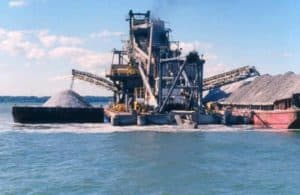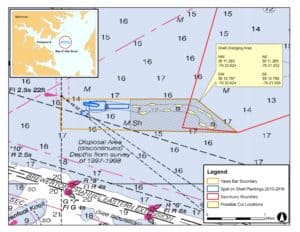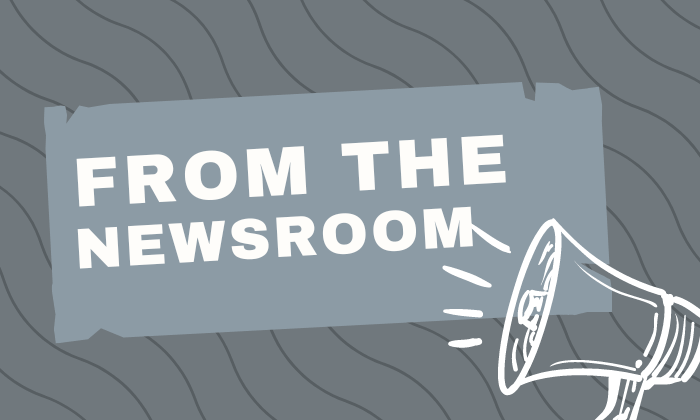March 12, 2018
David Sikorski, Executive Director.
CCA Maryland’s Government Relations Committee has been hard at work in Annapolis this session opposing bad bills and supporting good ones. It has been a busy year, with A LOT of legislation being introduced.
You can CLICK HERE to search for bills, find out who your legislator is, or learn more about the process.
Longtime volunteers Dr. Ken Lewis and Larry Jennings have attended each and every hearing for both good and bad natural resource policy bills. They have also spent time walking the halls to visit with legislators and their staff, and promote the values of conservation for the benefit of ALL Marylanders. We have had some new volunteers join our team this session, and worked with many allies that support the conservation of our natural resources.
If you would like to participate this year, please let us know by CLICKING HERE.
The session is about a month from closing, and it’s now crunch time to defeat bad bills, and push for the passage of good bills.
Remember that a bill must first pass a House and Senate Committee and then be voted on by the full House and Senate. Throughout the process many bills under go amendments and changes. Because of the high volume of bills this year, many bills will not make it through the process, and will likely show up in future years. Most of the bills we track are heard in the House Environment and Transportation Committee, or Senate Education, Health & Environmental Affairs Committee.
If a committee provides and unfavorable report then the bill has failed. If the committee provides a favorable report, it will move to the floor to be voted on and then cross over to the legislative body. Quite often bills are cross-filed, meaning they will have exact language in a House and Senate version, and are more likely to pass through the whole process and possibly become law.
These are basic explanations of what can be a complicated process, so remember that more information can be found on the General Assembly website.
We have been tracking multiple bills and provided testimony on the following bills. Click the bill title for a link to the General Assembly website with more bill information.

You may find a video of the testimony on each bill page by clicking on the camera icon show in the example image to to the right.
If you have found other legislation that you believe CCA Maryland should be aware of or providing input on, please let us know via email
Also, remember that CCA Maryland is a grass roots organization that works on behalf of our members. If you support the work we do for recreational anglers and our natural resources, please Join CCA Today!
Oysters:

House Bill 1455: Dredging on Man O War Shoal – Prohibition: This bill is exactly what the title says, a bill to STOP the dredging of Man O War Shoal.
- Man O War is one of the last large living reefs in the Upper Bay and provides unique habitat and structure, hosting a variety of species that fish, crabs, and waterfowl all rely on for food and habitat. Also, the eastern 1/3rd of Man O War Shoal is an oyster sanctuary, and while oyster spawning success in the Upper Bay is severely limited, that does not mean that the shoal is not an important part of the regional ecosystem.
- DNR has no specific plan for the use of any shell dredged from the Shoal. It states that, “Ultimately, [DNR] will utilize comments from the public and the Oyster Advisory Commission to develop an allocation plan.” Without a clear, well-defined plan that includes sustainable funding sources, any proposed dredging of a such a unique habitat is an ill-advised and unacceptable use of a public resources.
- The proposed future use of any dredged fossil shell for an unsustainable “put and take” fishery does nothing for the long-term security of that industry. Once the proposed 5 million bushels of fossil shell have been dredged and allocated, the next question will be “where do we dredge shell from now?”
- The application from Maryland DNR includes the statement that once dredging occurs, they will need to “assess the ecological consequences of removing the shell from the shoal”. We should not risk the health of our natural resources unless we know the consequences ahead of time, or spend public dollars on an experiment with no known positive benefit.
- There is a very significant funding gap that would prevent the full execution of DNR’s proposal. This funding gap would most likely result in the misuse of any shell dredged from the Shoal. Without a commitment in funding that would help guarantee the wise use of shell from Man-O-War Shoal, the State cannot afford to gamble with its remaining historic oyster bars.
- The wild oyster population continues to decline and there are no controls in place to manage that harvest in a sustainable fashion, or control the shell loss which occurs because of harvest.
- The low profile shell reefs that would be built by fossil shell do not support the level of growth needed in the Chesapeake Bay to create a sustainable population or fishery.

The permit review by the Board of Public Works has not been posted on their agenda yet, and we do not know when it will be. If this legislation passes it will put an end to a decade long debate on the dredging of Man O War Shoal.
CCA Maryland MOW Shoal Letter to Board of Public Works
House Bill 1455 Written Testimony:SUPPORT
List of groups and individuals opposed to the dredging of Man O War Shoal
House Bill 1426 – Natural Resources – Aquaculture Leases – Location: This bill would create a 1000′ buffer around “Yates Bars” for aquaculture leasing. Yates Bars is a term used for the polygons of oyster bottom that were found during a survey from 1906-1912. Charles Yates and his team used poles, chain drags and other methods to create this baseline survey of oyster bar locations. Since the survey, multiple other studies have been used to better define areas with oyster bottom. Because many factors impact oyster populations, many of the areas defined on the Yates Bars survey do not have oyster populations at this time, and simply show where reefs of hard bottom may have existed during the survey. At this time a 150′ buffer exists for aquaculture leasing, but many who participate in the wild oyster fishery believe this buffer is not big enough. This bill was heard on 3/7 and we hope for an unfavorable report.
House Bill 1426 Written Testimony:OPPOSE
Senate Bill 926 – Natural Resources – Oyster Planting – Substrate Material: This bill has received an UNFAVORABLE report from the Senate EHEA Committee. Our written testimony will provide more information on why we opposed this bill.
Senate Bill 926 Written Testimony:OPPOSE
Senate Bill 777- Written Testimony: Aquaculture Leases – Notice – Homeowners Associations: This bill has received an UNFAVORABLE report from the Senate EHEA Committee. Our written testimony will provide more information on why we opposed this bill.
Senate Bill 777 Written Testimony:OPPOSE
House Bill 572 / SB 0153 – Income Tax – Oyster Shell Recycling Credit – Maximum Allowable Amount & Sunset Repeal : These bills are cross filed. The house bill was heard by committee on 2/14 and the Senate bill will be heard on 3/21. We support these bills and our written testimony can be found below.
House Bill 572 Written Testimony:
SUPPORT
House Bill 1174: Natural Resources – Oysters – Tolerance for Seafood Dealers: We oppose this bill and consider it a weakening of current natural resource policy which may increase loop holes for the harvest of undersized oysters. This bill has PASSED the House E&T committee, and if passed by the full House will be scheduled for a hearing in the Senate. It has not been matched by a cross-filed Senate bill.
House Bill 1174 Written Testimony:OPPOSE
House Bill 1137: Natural Resources – Fisheries – Commercial Oyster Divers: This bill provides flexibility for oyster divers when selecting their crew. View our written testimony below for more information.
House Bill 1174 Written Testimony:SUPPORT
House Bill 1284: Tidal Fish Licenses-Authorization to Catch Crabs- Application Requirements: This bill aims to address an issue which exists with commercial crab licenses. When applying for most professional licenses in Maryland an applicant must provide proof that they are a resident of Maryland. For commercial crabbing, many non-residents use a P.O. Box located in Maryland to obtain their license. Crabs are our most valuable commercial fishery in Maryland at this time and should be prioritized for Maryland citizens to obtain the privilege to harvest them commercially before non-residents. This bill does not effect recreational crabbing licenses.
House Bill 1284 Written Testimony:SUPPORT
Trash:
House Bill 538/Senate Bill 651- Environment- Expanded Polystyrene Food Service Products-Prohibition: If you’ve been on the water long enough you’ve probably seen trash in many of our streams, rivers, and the Bay. Polystyrene food service products are one of trash products that cause more trouble than you might think. The breaking down of polystyrene into smaller toxic particles has been shown to cause major issues in the health of fish. CCA Maryland provided information to the House and Senate on this issue to help share how polystyrene effects fish health. This issue was also heard by the Baltimore City Council, where we provided similar letters of information. We recognize that the removal of polystyrene from the restaurant industry is a costly process and will take time and have economic impacts, but also recognize the importance of clean water and a health ecosystem in the region.
Senate Bill 651 Written Testimony
House Bill 538 Written Testimony

